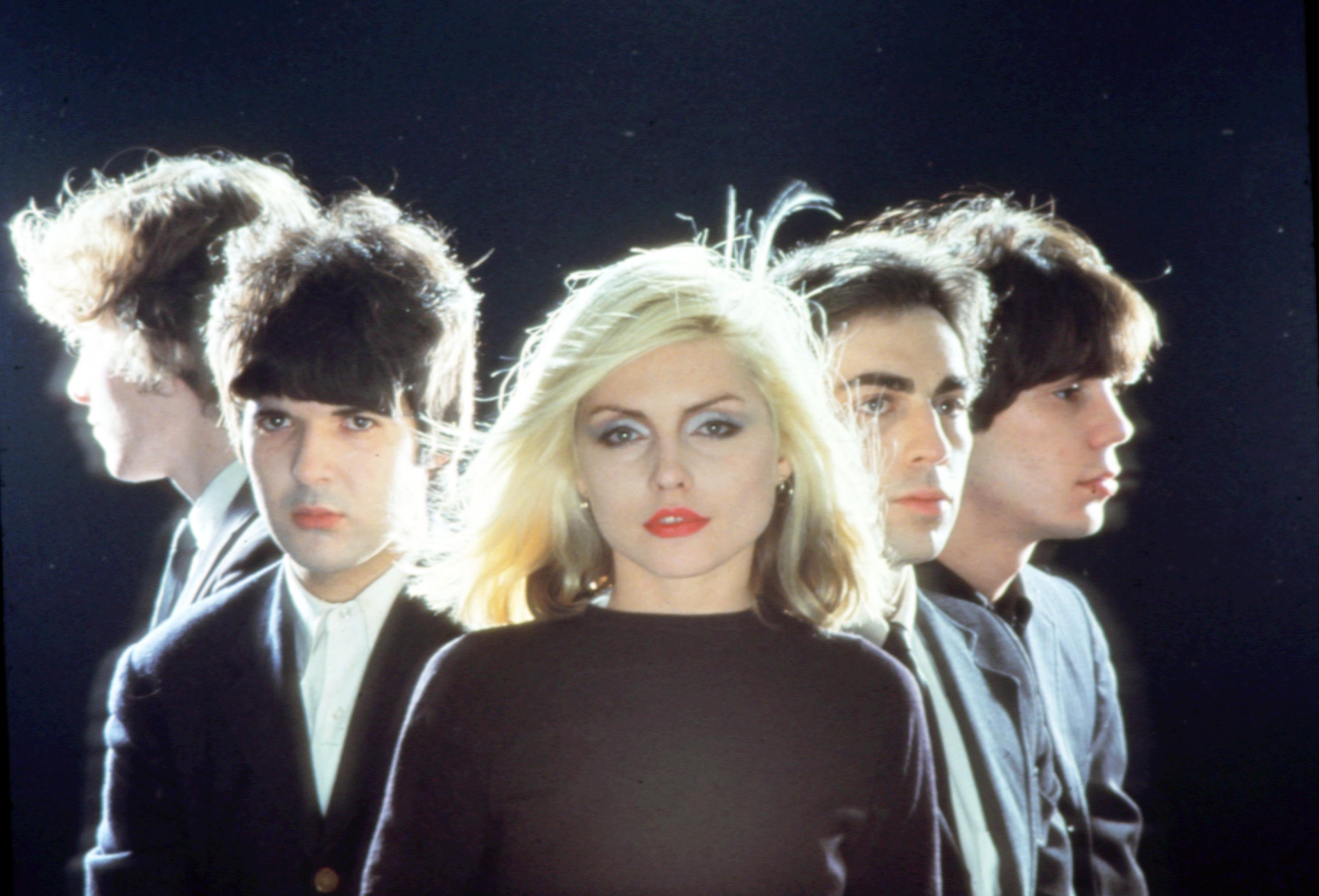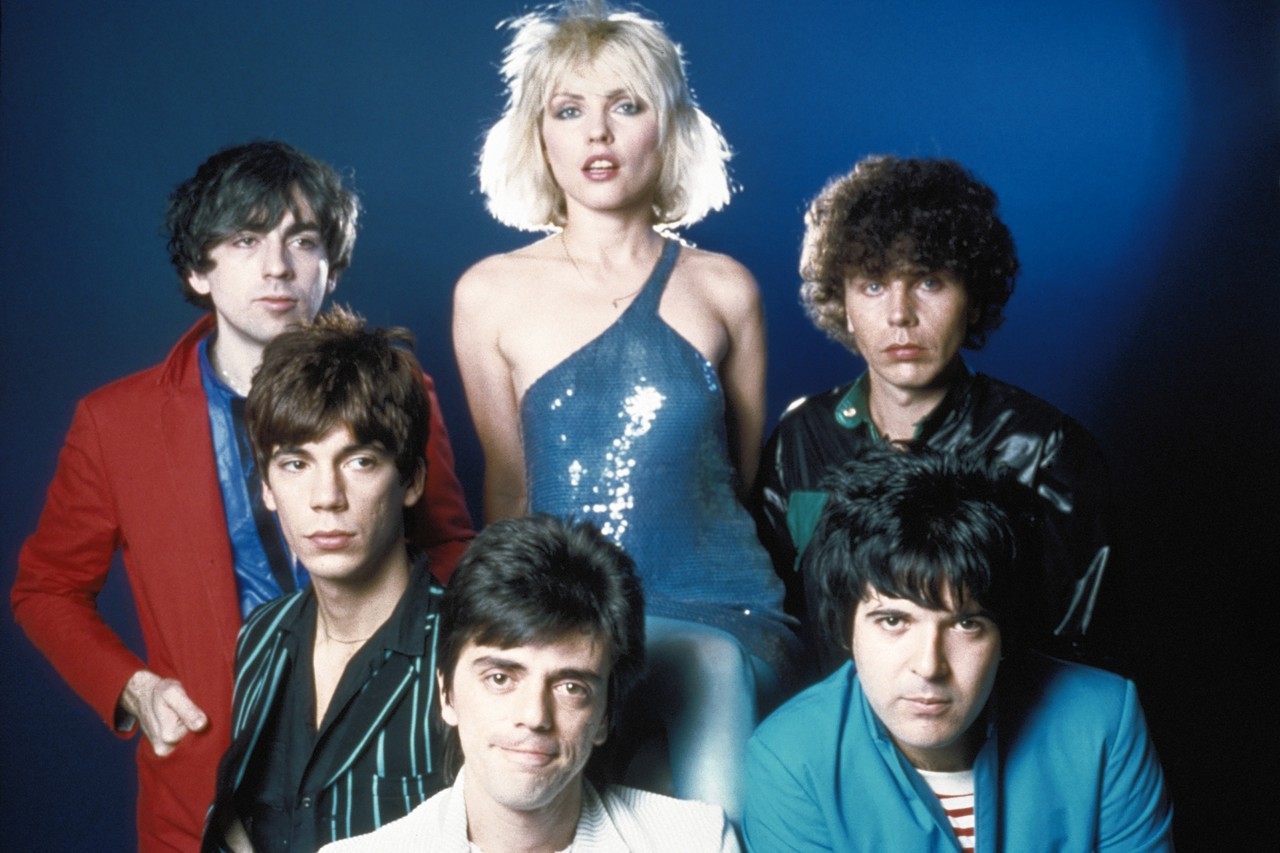Blondie And The Curious Case Of 'Happy Gilmore': Unpacking A Music Legend's Legacy
Have you ever found yourself humming a classic tune, perhaps something like "Heart of Glass" or "Call Me," and then, a little while later, seen a movie like "Happy Gilmore" and wondered if there's a connection? It's a rather interesting thought, isn't it? The phrase "blondie happy gilmore" pops up sometimes, and it definitely makes you curious about what people are searching for. Today, we're going to clear things up and celebrate an iconic band that truly shaped music history.
For many, the name Blondie brings to mind a vibrant era of music, a time when punk rock energy met pop sensibility, creating something totally fresh. We're talking about a group that truly stood out in the late 1970s and early 1980s, leaving an absolutely huge mark. Their sound and style, you know, really caught on, making them legends in their own right, and stuff.
While the band Blondie is a celebrated music powerhouse, the phrase "blondie" in the context of "Happy Gilmore" usually points to something else entirely. It often refers to a character's blonde hair in the movie, not the famous rock group. So, to be honest, there's no direct link between the legendary band and the film. Our main focus here, you see, is on the incredible musical journey of Blondie, the band that gave us so many unforgettable songs.
Table of Contents
- Blondie: A Band Profile
- The Genesis of a Sound: How Blondie Came to Be
- Breaking Boundaries: Punk, New Wave, and Pop Sensations
- The Iconic Frontwoman: Debbie Harry's Enduring Influence
- A Legacy That Lasts: Blondie's Place in Music History
- Addressing the 'Happy Gilmore' Query
- People Also Ask About Blondie
Blondie: A Band Profile
Here's a quick look at some key details about the band Blondie, you know, for reference.
| Formation Year | 1974 |
| Origin | New York City, USA |
| Founding Members | Debbie Harry (singer), Chris Stein (guitarist) |
| Genre | American Rock, New Wave, Punk |
| Key Albums | Blondie (1976), Parallel Lines (1978) |
| Notable Hit Songs | Heart of Glass, Call Me, The Tide Is High, Rapture, One Way or Another |
| Hall of Fame Induction | Rock and Roll Hall of Fame (2006) |
The Genesis of a Sound: How Blondie Came to Be
Blondie, a truly remarkable American rock band, began its journey in New York City back in 1974. It was the singer Debbie Harry and the guitarist Chris Stein who brought this creative idea to life. Their vision was pretty clear: they wanted to make music that felt fresh and exciting, and they certainly did, in a way.
The band's early days were steeped in the vibrant New York music scene of the 1970s, which was, you know, bubbling with new sounds. They were right there as punk rock was taking hold, but they had their own unique twist. Their first two albums, for example, really showed off these strong punk elements, giving them a raw and energetic vibe that people really liked.
From the very start, Blondie was about pushing boundaries and not fitting neatly into any one box. They took the raw power of punk and mixed it with something else, something catchy and melodic. This blending of styles, you see, was a big part of what made them so special and so different from others at the time.
Breaking Boundaries: Punk, New Wave, and Pop Sensations
Blondie rates highly as the single most popular and successful group to emerge from the 1970s New York City punk/new wave music scene. They truly captured the spirit of the time, yet they managed to reach a much wider audience than many of their contemporaries. This broad appeal, you know, was something quite special.
Their sound was a fascinating mix, often defying simple categorization. They had a knack for writing great rock hooks, those catchy musical phrases that stick in your head. And, in fact, their lyrics were often brilliant and ironic, adding another layer of depth to their songs, which was pretty cool.
The band released its eponymous debut studio album in 1976, which gave the world a first taste of their unique style. Following that, they released three more studio albums between then and 1979, and one of these was the incredibly influential "Parallel Lines." This album, you know, really took off.
"Parallel Lines" was a game-changer for them, spawning six singles that became huge hits. Among these were songs like "Heart of Glass," which quickly became a global sensation. It showed just how well they could blend different sounds into something incredibly popular, and you know, make it work.
Their hit songs also include classics like "One Way or Another," which many people still love today. Then there's "Call Me," a song that truly cemented their status as pop icons. And let's not forget "The Tide Is High" and "Rapture," which further showcased their amazing versatility and willingness to experiment, too it's almost like they could do anything.
The Iconic Frontwoman: Debbie Harry's Enduring Influence
Debbie Harry is, arguably, the face of Blondie, a singer and actress famous for leading this new wave band. Her presence, you know, was absolutely captivating, making her a true icon. She brought a unique blend of coolness and charisma to the stage, which was quite something to see.
She wasn't just a singer; she was a style setter. Debbie Harry and the band had the hippest clothes and the coolest hair, which really helped define their visual identity. This look, you know, was as much a part of their appeal as their music, making them stand out in a big way.
Her voice, too, was incredibly distinctive, moving effortlessly between punk rock snarls and smooth pop melodies. This vocal range allowed Blondie to explore different musical territories, from gritty punk to disco-infused pop, and even early rap, as a matter of fact, with "Rapture."
Debbie Harry's influence extends far beyond just music. She became a symbol of female empowerment and artistic freedom, inspiring countless artists and fans. Her fearless approach to creativity, you know, really left a lasting impression on culture, and stuff.
A Legacy That Lasts: Blondie's Place in Music History
Inducted into the prestigious Rock and Roll Hall of Fame in 2006, Blondie emerged as the great pop icons of New York's celebrated late '70s new wave punk scene. This induction really solidified their place among the music greats, which is pretty significant.
Their ability to defy easy categorization, blending genres like punk, pop, disco, and even reggae, is a testament to their innovative spirit. They weren't afraid to mix things up, and that's, you know, part of what made them so exciting and fresh for their time.
The current Blondie lineup continues to perform, keeping their incredible music alive for new generations. Touring members, for example, include talents like Andee Blacksugar, who helps bring their classic sound to life on stage today. They are still out there, sharing their amazing songs.
Their sound and style have left an indelible mark on music history, launching them into the stratosphere of legendary status. Blondie's influence can still be heard in countless bands and artists today, proving just how much they changed the game. It's, like, truly amazing to think about.
To learn more about Blondie's incredible journey, you can find more details on our site. And if you're curious about the ongoing impact of New Wave music, you might want to check out this page for more insights.
For official news, tour dates, and more about the band, you can always visit the official website of Blondie. It's a great place to keep up with everything they're doing, you know, right now.
Addressing the 'Happy Gilmore' Query
So, about that "blondie happy gilmore" search query, it's pretty clear now that the band Blondie isn't directly involved with the movie "Happy Gilmore." The film, released in 1996, is a comedy starring Adam Sandler, and it doesn't feature the band's music or any direct references to them. That, you know, is important to clarify.
When people search for "blondie happy gilmore," they are most likely thinking about the character Virginia Venit, played by Julie Bowen, who has blonde hair. Or perhaps it's a general reference to a blonde character or a blonde wig in the movie. It's a common thing, you know, for search terms to sometimes connect unrelated ideas in people's minds, which is pretty interesting.
The band Blondie and the movie "Happy Gilmore" simply exist in different creative universes. One is a powerhouse of musical innovation that truly defined an era, and the other is a beloved sports comedy. Both are fantastic in their own ways, of course, but their connection is, well, more about a shared word than a shared story, as a matter of fact.
People Also Ask About Blondie
Is Blondie still making music today?
Yes, Blondie is still very much active today. The current lineup, including founding members Debbie Harry and Chris Stein, continues to tour and create new music. They have released albums in recent years and, you know, often have tour dates available, showing they are still going strong.
What are Blondie's most famous songs?
Blondie has a collection of truly iconic songs that became massive hits. Among their most famous are "Heart of Glass," "Call Me," "The Tide Is High," and "Rapture." These tracks, you know, really showcase their versatility and their ability to blend different musical styles into chart-topping successes.
When was Blondie inducted into the Rock and Roll Hall of Fame?
Blondie received the prestigious honor of being inducted into the Rock and Roll Hall of Fame in 2006. This recognition, you know, celebrated their significant contributions to music and their lasting impact on the rock and new wave genres, pretty much cementing their legendary status.

An oral history of Blondie

Blondie - Best of Blondie - Amazon.com Music

Blondie